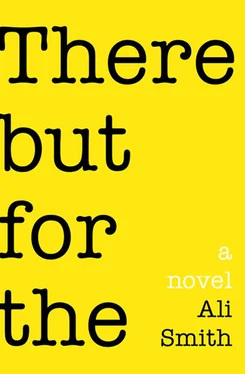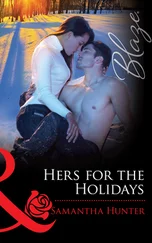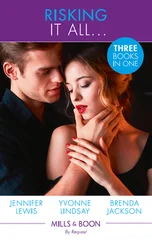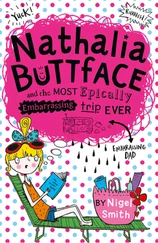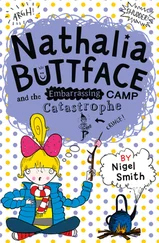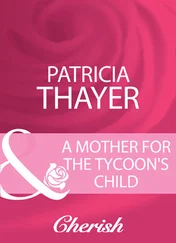No, she will be even wittier, she will choose specifically Eurovision hits. Ding-a dong every hour, when you pick a flower. She will find a picture of the belltower of that big church and send it on that. Douglas will think that’s really funny. Ding-a dong, listen to it. Maybe it’s a bigot. Even when your lover is gone gone gone, sing ding dang dong.
Along from her at the lakeside there is a gangly boy. He’s one of the tour group. Yes, he’s definitely from the group; he’s got the blue folder next to him on the grass. She’s seen him, she remembers now; he’s one of the popular ones. Is he one of the nasty popular ones or one of the less nasty? And has she been humming that tune out loud, the Eurovision one she was just thinking about? She must have been, because that boy has started to whistle it, and he can’t have been thinking of that completely random song, which is years old, and a private joke between her and Douglas, at the exact same moment as she thought of it.
He starts whistling something else. It’s the Abba song about I have a dream. He doesn’t look the Abba type.
He sings the lines about how if you see the wonder of a fairytale you’ll be fine in the future. He has a quite good voice. He’s singing quite loud, loud enough for her to be able to hear him clearly. In fact it’s almost as if he’s singing for her.
Then, next, does he really sing this?
I believe in Engels.
That’s unbelievably witty, if that’s what he’s just sung and she hasn’t misheard. That’s the kind of thing only a really good friend of hers would have known to do to get her attention.
Then the boy speaks, and it is to her.
Come on, he says.
He seems to want her to sing.
She gives him her most withering look.
You’re joking, she says.
I only joke about really serious things, he says. Come on. Something good in everything you see.
Don’t know it, she says.
You do, he says.
I don’t, actually, she says.
You do, actually, he says, because Abba songs, as anyone who knows knows, are constructed, technically and harmonically, so as to physically imprint the human brain as if biting it with acid, to ensure we will never, ever, ever, be able to forget them. In twenty years’ time Abba songs will still be being sung, probably even more than they’re being sung now.
Is that what you wrote your Britain in the year 2000 thing about, then? she says. The Generation Maimed In The Brain By Abba?
Maybe, he says.
No way, she says.
What was yours, then? he says.
I asked first, she says.
Here’s how mine starts, he says. There was once a girl in a dated-looking punk T-shirt—
It is not dated-looking! Anna says.
— sitting by the side of the water at a French historical palace—
Very funny, Anna says.
She was very funny, he says. Or was she? Nobody knew, nobody ever found out, because she was so determined to keep herself to herself. If only she’d joined in with the Abba song Miles was singing by the water at Versailles that day, then everything would have been, as if by magic, all right. Unfortunately, something stubborn, which had taken hold in her constitution at a very early age—
I’m not stubborn, she says.
Unfortunately, something supercilious, which had taken hold in her constitution—, he says.
I’m not that either, she says, whatever it is. There’s just no way I’m going to be caught dead singing Abba.
I’d never sing Abba, he says. I’m not singing Abba, I’m singing revolution. Unfortunately, something conservative, small c and big C, had taken hold in—
I am no way either of those, she says. And your story’s completely pathetic. I’m actually not joining in because I actually don’t know the words of it.
Making them actually up myself actually, he says. Anyway actually it’s you who started with the actual Eurovision pop, not actually me. There was once a girl twenty years in the future who was totally unable to communicate except by rolling her eyes and saying only the word actually. There. Now. You tell me the first line of your story.
You tell me the real first line of yours first, she says.
He has moved to sit closer to her.
What’s your name? he says.
Anna, she says.
Your name is almost Abba, he says.
This makes her nearly laugh out loud.
There was once, and there was only once, he says. Once was all there was.
That’s your beginning? she says. Really?
He looks away.
That’s quite good, she says.
Thanks, he says.
Except, you say there was once and there was only once, and then with that next line you say it again, so you end up saying the word once three times, which means once doesn’t end up meaning once at all, she says.
There was once a girl who was too critical for words, he says. Or maybe just critical enough for words. What’s your beginning, then, critic?
The future’s a foreign country. They do things differently there, she says.
Yeah, I know, but what’s your beginning? he says.
Then either he winks at her or he’s got something in his eye.
It’s, like, from the LP Hartley book, she says. Like a new version. You know. The past is a foreign country. From the book The Go-Between.
Uh huh, he says. Though I think the original line written by LP Hartley is assonantally better than yours.
You can go and assonate yourself, she says.
Well, okay, I will, he says, but it won’t have the same effect as when they assonated Presidents Lincoln and Kennedy.
This time she does laugh out loud.
Anyway, he says. Actually. What was it about, your story, anyway actually?
It’s about this girl who wakes up in the year 2000 after being asleep for twenty years, Anna says. And the catch is: in the year 2000 pretty much everything’s exactly like now, except this. When the girl tries to read words it’s like they’re all printed upside down. She wakes up and she goes to the kitchen and gets out a packet of cereal and it looks exactly the same as a cornflakes packet now. Except she notices that the writing on it is upside down. She can still read it and everything, but it’s a bit weird. She turns it on its head, but that doesn’t work, because the words are printed in the same order as they would be if they were printed the right way up. Then she tries to read the newspaper and she realizes it’s the same — the words are all printed upside down. And then she’s in a panic and she thinks she’s losing her brain, and she goes to get her old copy of her favourite book off the shelf, a book she read twenty years ago, like, now, and it’s The Go-Between by LP Hartley, and she opens it, and its words are all the right way up and everything, and she breathes this big sigh of relief. But then she goes out into town. And the writing on the front of the bus is upside down. And all the shop names are upside down. And no one else thinks it’s a big deal or anything. And then she gets suspicious, and she goes specially to the bookshop she always went to, you know, twenty years ago, in 1980, and she takes a new copy of the same book, The Go-Between, down off the shelf. And sure enough, on the cover the title is upside down, and on the back the summary thing they write about the story is upside down. And she opens it, and every page is printed upside down. And then half a day passes, and by lunchtime she’s used to the words being the wrong way up. Her brain just processes it. And by the end of the story she isn’t even noticing they’re upside down any more.
She stops speaking. She is suddenly embarrassed, at saying so much out loud, and exhausted too. It is more than she’s said all in one go since she left home.
Читать дальше
